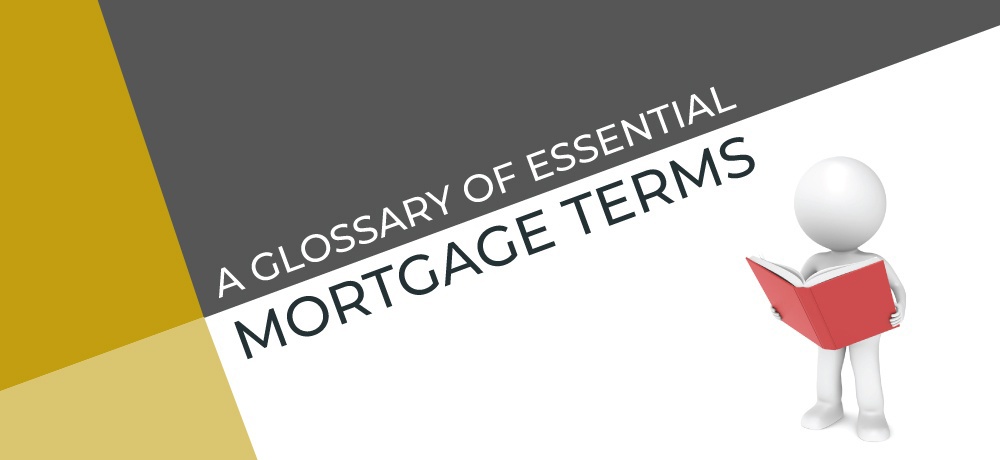A Glossary of Essential Mortgage Terms

Every industry has its own language and terms. These words and phrases can be confusing to anyone who is not part of the daily operations of a specific industry, and the mortgage business is no exception.
To help you understand the terms, acronyms, and phrases regularly used in the mortgage industry, Karen Pacheco has created this handy reference guide. Here you'll find valuable information allowing you to comprehend and communicate your mortgage needs effectively.
Mortgage.
A mortgage is a loan that uses a piece of real estate as security. Once that loan is paid off, the lender provides a discharge for that mortgage.
Mortgagor.
The person who borrows the money using a mortgage.
Mortgagee.
The financial institution or person (lender) who is lending the money using a mortgage.
Conventional Mortgage.
A mortgage of up to 80% of the purchase price or the value of the property. This would refer to buying a home where you put 20% or more down payment towards the purchase price.
High-Ratio Mortgage.
A mortgage that exceeds 80% of the purchase price or appraised value of the property. This type of mortgage must be insured through one of the three mortgage insurers, either CMHC, Genworth or Canada Guaranty.
Interest Adjustment Date (IAD).
It is the date on which the mortgage term will begin. This date is usually the first day of the month following the closing. The interest cost for those days from the closing date to the first of the month is usually paid at closing. It is therefore always better to close your deal towards the end of the month.
Prepayment Penalty.
A fee charged to a borrower by the lender when the borrower prepays all or part of a mortgage over and above the agreed amount. Although there is no law as to how a lender can charge you the penalty, a usual charge is the greater of the Interest Rate Differential (IRD) or three months interest.
Switch.
To transfer an existing mortgage from one financial institution to another. In most cases, we can arrange this at no cost to you. No new money can be taken out of the equity during a switch/transfer. If new money is required, then a refinance would need to be considered.
Variable Rate Mortgage.
A mortgage for which the interest rate fluctuates based on changes in prime. Currently, as of November 2017, the Prime Rate is 3.95%. In most cases, with a variable mortgage you will be offered a discount off of Prime, i.e. 8% less; therefore, your current rate would be 3.15%. If the Prime Rate increases, then your rate will increase, however, you will always have the set discount in place for the term.
Gross Debt Service Ratio (GDS).
It is one of the mathematical calculations used by lenders to determine a borrower’s capacity to repay a mortgage. It takes into account the mortgage payments, property taxes, approximate heating costs, and 50% of any maintenance fees. This sum is then divided by the gross income of the applicants.
Total Debt Service (TDS) Ratio.
It is the other mathematical calculations used by lenders to determine a borrower’s capacity to repay a mortgage. It takes into account the mortgage payments, property taxes, approximate heating costs, 50% of any maintenance fees, and any other monthly obligations (i.e., personal loans, car payments, lines of credit, credit card debts, other mortgages, etc.). This sum is then divided by the gross income of the applicants. Depending on your credit score, the allowable TDS could change.
Amortization Period.
It refers to the number of years it takes to repay the entire amount of financing based on a set of fixed payments.
Equity.
Equity is the difference between the market value of the property and any outstanding mortgages registered against the property. This difference belongs to the owner of that property.
Accelerated Bi-Weekly Payments.
Many people choose the bi-weekly payments for their mortgage payment frequency to keep in line with the timing of their payroll. Bi-weekly payments will occur twenty-six times per year. Accelerated bi-weekly payments also occur twenty-six times per year; however, they are calculated by taking the amount of the semi-monthly payment for your bi-weekly payment. The amount is slightly higher than the regular bi-weekly, and you will still get two extra payments in per year essentially helping to pay your mortgage faster.
Closing Date.
The date on which the new owner takes possession of the property and the sale becomes final. It is also referred to as the ‘Funding Date’ or ‘Possession Date.’
Appraisal.
The process of determining the market value of a property. Most of the time on purchases that are ‘insured’ or ‘high-ratio,’ the lenders do not require an appraisal. However, an appraisal could still be requested by the lender or the insurer for properties that are unique such as a farm or acreage. The appraisals are usually a purchaser paid requirement and can range from $250-$450 or higher depending on the location.
P.I.T.
Principal, interest, and property tax are due on a mortgage. If your down payment is greater than 25% of the purchase price or appraised value, the lender will allow you to make your own property tax payments.
If you’re looking for an experienced mortgage agent in Edmonton, Alberta, as well as Sherwood Park, Leduc, Spruce Grove, Stony Plain, Fort Saskatchewan, Morinville, and the surrounding areas, reach out to Karen Pacheco. Whether it is a trade up home, first time purchasing, real estate investing, vacation property or debt consolidation, I can assist you with your financial goals.
To learn more about how I can help you, please click here. If you have any questions about obtaining a mortgage, please get in touch with me here.